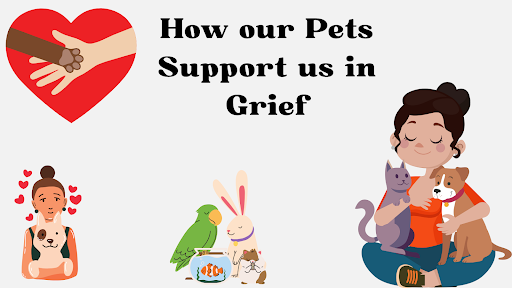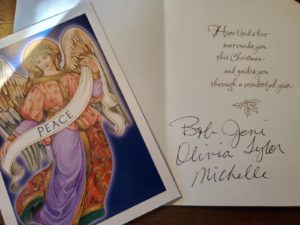Losing someone can shatter our world and leave us feeling like strangers in our own environment. What once was familiar and comforting becomes quieter, colder, and foreign to us. When this happens, the warm weight of a pet curled up beside us can help us feel again. In many instances, widows discover that pets become more than just companions. They become healers, silent witnesses, and steady reminders that love still exists.
Grief changes us. It enters our bodies and minds, making even the simplest things feel overwhelming. At first, simply breathing and moving forward may seem impossible. During these times, turning to a pet can provide unexpected comfort. They may not offer answers, but they also do not try to “fix” what cannot be fixed. They simply stay with us, sitting in our sorrow, offering unconditional love and quiet companionship. Their presence often softens some of the harshest edges of loss.
Companionship
The quiet, nonjudgmental companionship of a pet can be a powerful source of support. By simply being there, they allow us to process our emotions at our own pace. Pets do not pressure us to “move on” or minimize our pain. They do not make us feel guilty for our tears or ask us to explain what we are going through. They simply stay, curled beside us on the couch, warming our feet stretched out on the bed, or following us from room to room. They never grow uncomfortable with our silence. And research confirms what our hearts already know: pet companionship can ease loneliness and reduce depression after loss.
Structure Amid Chaos
Grief often strips away our sense of purpose. Days blur, nights stretch long, and routines fall apart. Pets help restore some of that structure by needing us. Feeding, walking, brushing, and caring for them becomes a rhythm that steadies us when everything else feels uncertain. These tasks, small as they may be, can gently pull us back into life, reminding us to step outside for a walk, prepare a meal, and keep moving forward. In caring for them, we often find ourselves slowly caring for our own healing as well.
Physical Touch and Comfort
When we grieve, we ache for the physical presence of the one we lost. Pets, in their own way, help to fill some of that void. Touch matters for both humans and animals. Stroking a dog or cat has been shown to lower cortisol, the primary stress hormone, and increase oxytocin, a hormone associated with bonding and empathy. But beyond science, there is something profoundly soothing about a dog’s steady breathing, a cat’s gentle purr, or the weight of a rabbit resting its head in your hand. Animals often sense our distress and instinctively draw near, sitting close, leaning against us, or simply being present. That closeness reminds us that comfort is still possible.
A Living Connection to Our Loved One
For many widows, pets were also companions to the spouse they lost. They shared walks, quiet evenings, or warm snuggles with both of us. In this way, pets carry forward a living link to the memories we treasure. Continuing to care for them can feel like honoring our spouse’s love and keeping alive a small piece of the life we once shared.
Permission to Feel Joy Again
In the early stages of grief, joy can feel unreachable or even disloyal. Yet pets have a way of gently coaxing joy back into our lives. A dog’s silly dash around the yard, a cat’s stubborn attempt to sit on your keyboard, or a bird’s cheerful chatter can spark laughter when we least expect it. These moments remind us that grief and joy are not opposites. They can coexist, and it is okay to feel both at once.
A Bridge Back to Community
Sometimes, pets help us re-enter the world when we feel most withdrawn. Walking a dog may lead to a conversation with a neighbor. Visiting a park might connect us with fellow pet owners. Therapy pet programs and community spaces often open doors we might not have stepped through alone. In small yet significant ways, our pets can guide us back to connection and a sense of belonging.
A Personal Story: Hans, Teresa’s Unofficial Therapy Dog
Pets give us a purpose to care for them when there seems to be no point, and they can provide moments of levity with their antics. After Kris died, it was just my kids and me on the ranch. Without him, we felt less safe, and even Kristie, his beloved dog, seemed to need a companion.
I had always wanted a Doberman, and I hoped a puppy might bring us joy and a sense of safety during those dark days. Just two months after Kris’s death, we got home Hans, the Destroyer, as we soon called him. Hans was precisely what we needed: a goofy, loveable pup who tripped over his oversized paws, tried to chew on shoes bigger than himself, and snuggled in close when tears fell.
Even Kristie was livelier, teaching Hans how to patrol the ranch and showing him what it meant to be a dog. Together, they gave us laughter when we thought we had lost the ability to smile, and they gave us comfort when grief felt unbearable.
As Hans grew, our “Oh, Hans” turned into “Oh no, Hans!” His bark was intimidating, but he was always quick to nuzzle in for affection or drop a toy at our feet. He was not the fierce guard dog I expected, but he became something far more important: our unofficial grief therapy dog.
If you would like to learn more about Hans and the role he played in our healing, I share his story in my memoir Soul Love: How a Dog Taught Me to Breathe Again.
Closing Reflection
When we lost our husbands, we did not know how we would make it through the days ahead. But our pets seemed to understand. They stayed close, nudging us toward life when we so badly wanted to retreat from it. In feeding, walking, and loving them, we found ourselves taking gentle steps toward healing.
Our pets do not erase grief, but they do soften its edges. They remind us that even when life changes forever, love remains, sometimes in the form of four paws, a wet nose, or a warm purr curled against your heart.
We’d love to hear from you
How has a pet supported you in grief? Leave a comment or share this post. Someone else might need to know they’re not the only one feeling this way.
Peace & Blessings,
Teresa & Jeni
PS: For additional support, you can download our free copy of 10 Ways to Move Forward After Loss
The First Days: Coping with Life After Loss is a resource for the first days after a loss – available on Amazon in paperback.
My Journey as a Widow: A Widow’s First Journal is a follow-up journal for processing complex emotions and moving forward with hope. It is available in paperback on Amazon.
Follow us on Social Media:
Facebook: https://www.facebook.com/TornInHalfwidows/
LinkedIn: https://www.linkedin.com/company/torn-in-half/




